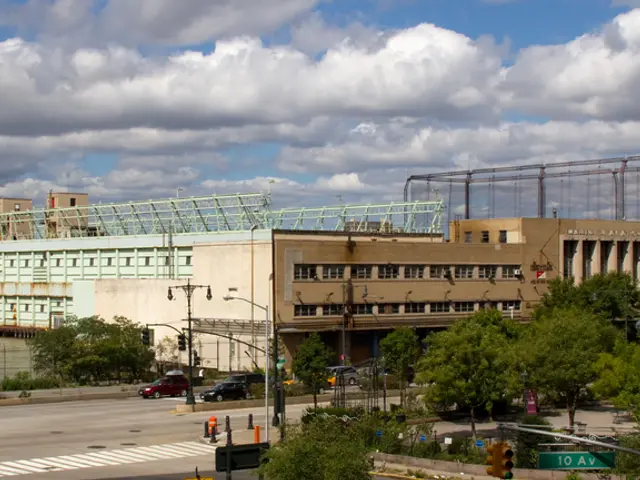Digital economy expansion drives growth ambitions in Ho Chi Minh City following merger events
As Ho Chi Minh City continues to grow and evolve into a mega-urban area, the importance of cybersecurity in the face of increasing cyberattack risks cannot be overstated. The city's digital economy, a key development pillar, aims to account for 25% of regional GDP this year and 40% by 2030.
Small and Medium-sized Enterprises (SMEs), which account for 97% of all enterprises and contribute 60% of GDP, are a particular focus. Successful digital transformation could boost their productivity by 15-20%. To achieve this, the city will leverage the advantages of its central urban area in services and innovation, Binh Duong's industrial strengths, and Ba Ria-Vung Tau's seaport and tourism potential, forming a comprehensive digital economy value chain.
A demand-supply connection model is essential, coordinating between central and local levels, to address imbalances in resources, products, and services. To develop a strategic roadmap, the city needs to rely on five pillars: improving the institutional framework, developing digital infrastructure, enhancing human resource quality, building an innovation ecosystem, and strengthening cooperation and linkages.
Institutional Framework
The city will likely adopt strategies similar to those being developed at the national level, including legal and regulatory enhancements and digital governance measures that support the growth of the digital economy.
Digital Infrastructure
Investment in digital infrastructure will be crucial, with initiatives like the development of core digital platforms and high-speed internet infrastructure likely to feature prominently.
Human Resource Quality
Improving digital skills in the workforce is essential. Programs that enhance IT and digital literacy among residents, as well as education and training initiatives, will be prioritized to ensure the workforce is equipped to contribute to the digital economy.
Innovation Ecosystem
Ho Chi Minh City will foster an innovation ecosystem by supporting startups, tech incubators, and innovation hubs. Integrating core technologies like AI, big data, and IoT into businesses and services will be a key part of this ecosystem.
Cooperation and Linkages
The city will engage in public-private partnerships (PPPs) to leverage resources and expertise from both domestic and international partners. Strengthening linkages with other regions to facilitate data exchange and digital service development will also be a focus.
The city's goal is to have its digital economy contribute to a double-digit economic growth rate starting from 2026. The wholesale and retail support ecosystem includes e-commerce platforms, customer relationship management systems, warehouse management systems, online payment platforms, and data analytics tools.
The Ministry of Science and Technology (MoST) is focusing on enhancing the role of SMEs in digital transformation. The MoST has developed a set of digital transformation assessment indicators for SMEs and proposed solutions such as digital signatures, e-invoices, e-commerce, and AI platforms tailored to each sector.
However, one major challenge facing Ho Chi Minh City is the disparity in the level of digitalization between regions, particularly between Ho Chi Minh City, Binh Duong, and Ba Ria-Vung Tau. Bridging this gap will be critical to the success of the city's digital economy strategy.
In the pursuit of a double-digit economic growth rate from 2026, Ho Chi Minh City's digital economy will rely heavily on the finance sector to support the growth of e-commerce platforms, online payment platforms, and data analytics tools within the wholesale and retail industry. Businesses, especially Small and Medium-sized Enterprises (SMEs), will leverage technology like digital signatures, e-invoices, and AI platforms to enhance their productivity and competitiveness, thereby contributing to the city's digital transformation. To address regional disparities in digitalization, cooperation between Ho Chi Minh City, Binh Duong, and Ba Ria-Vung Tau will be paramount, creating a network of innovation and technology-driven businesses that strengthen the city's overall digital economy strategy.




